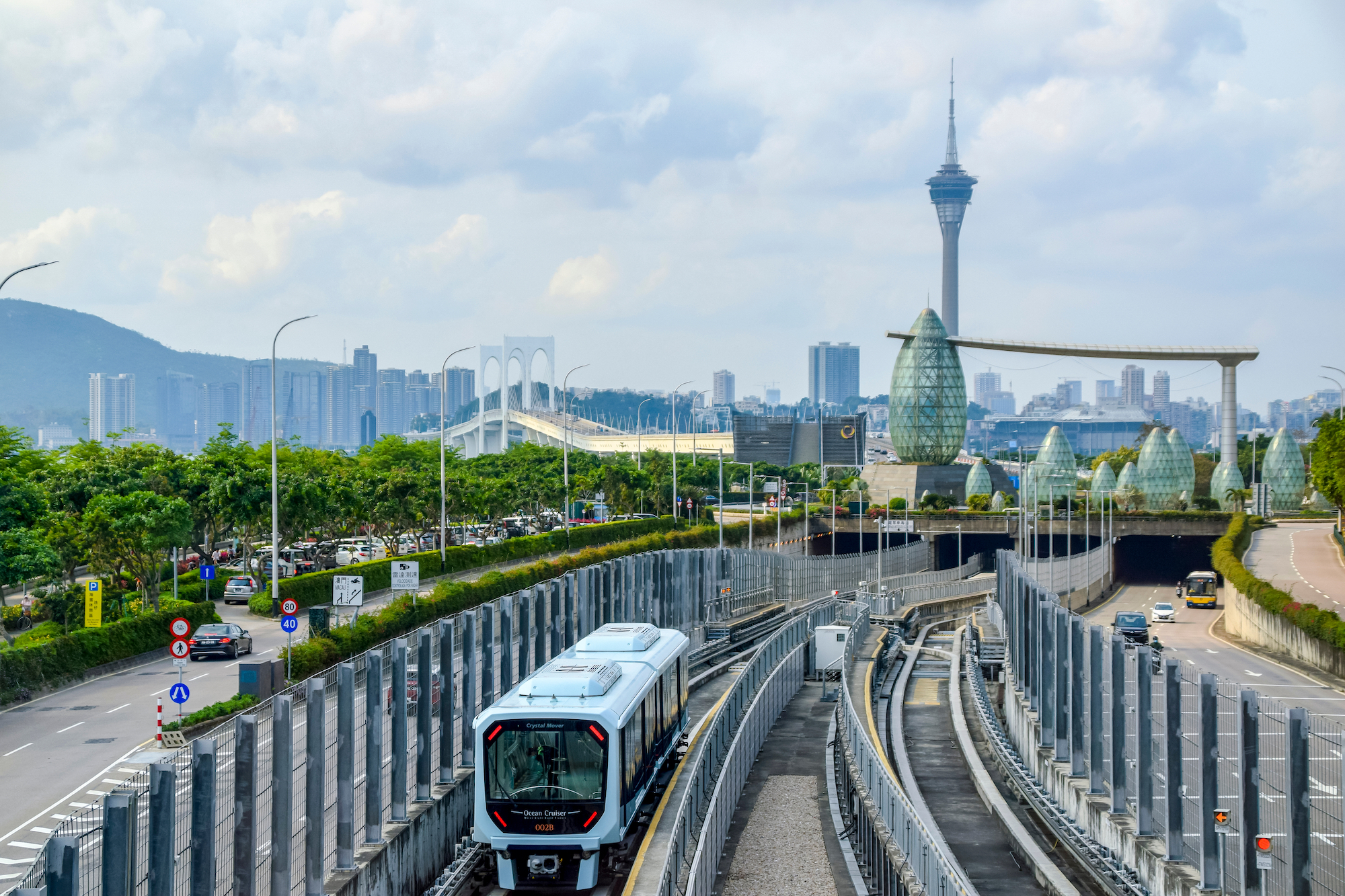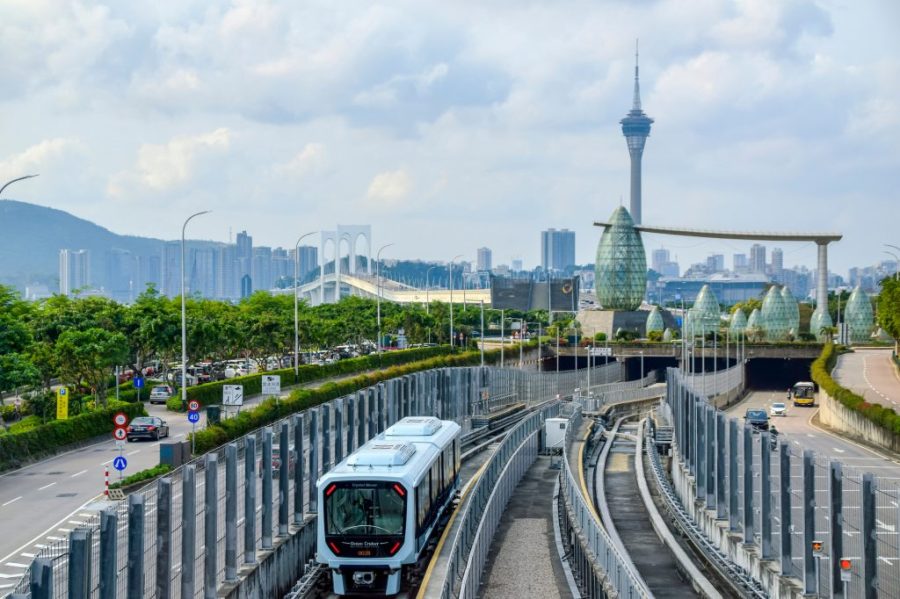The Light Rail Transit (LRT) section connecting Taipa and Barra via Sai Van Bridge is due to come into service at the end of next year or the beginning of 2024.
Currently, the LRT only operates on the 9.3-kilometre-long Taipa section including Cotai. The Taipa-Cotai section, which started operating in December 2019, has 11 stations.
The first LRT section that will connect Taipa and the peninsula will run from the Ocean station, the western terminus of the LRT Taipa section, to the south-western tip of the peninsula near A-Ma Temple. The LRT Ocean station is located near Ocean Gardens. The LRT Taipa-Barra section will run through the lower enclosed deck of the Macao-Taipa Sai Van Bridge.
According to the Public Works Bureau (DSOP), the LRT station at Barra is now slated to be completed in March next year.
Speaking in the Legislative Assembly on Wednesday, Secretary for Transport and Public Works Raimundo do Rosário said that with the construction of the LRT Barra station still to be completed, the LRT system could link Taipa and the Macao peninsula next year at the earliest.
In replies to questions from lawmakers, Rosário underlined that the government now aims for the LRT Taipa-Barra section to come into operation at the end of next year, adding that it can open by early 2024 at the latest.
Two LRT projects, the Seac Pai Van section and the Hengqin section, are currently being carried out in Macao.
The 1.6-kilometre-long Seac Pai Van section will connect the LRT Taipa section near the future Cotai hospital complex and the Seac Pai Van public housing estate in Coloane. According to the DSOP, the Seac Pai Van LRT project, which broke ground in September last year, is now scheduled to be completed in February 2024.
The 2.2-kilometre-long Hengqin section will connect Macao’s Cotai and Zhuhai’s Hengqin Island. The LRT Cotai-Hengqin section project, which started in March last year, is scheduled to be completed in September 2024.
The LRT Cotai-Hengqin section will link the area of the now-defunct Lotus Flower checkpoint building in Cotai with the Macao-Zhuhai joint border checkpoint in Hengqin. The LRT track will gradually descend from the elevated segment in Cotai and cross the Cotai-Hengqin river via a 900-metre-long underwater tunnel before arriving at the underground station at the Hengqin checkpoint.
Macao’s Public Works Bureau announced last week that the hole-through of the underwater tunnel of the ongoing LRT Cotai-Hengqin project had been completed, adding that around 60 per cent of the LRT Cotai-Hengqin project had been completed. The bureau added that the project’s latest “smooth” progress has “consolidated” the government’s objective of being able to open the Cotai-Hengqin section in 2024.
During Wednesday’s Q&A session, Rosário also acknowledged that building and operating the LRT system is expensive, but the government will have no choice but to continue expanding Macao’s LRT network, as otherwise the city’s public transport system would never be improved with only limited coverage of the LRT system.
The policy secretary said that the future LRT East Line will be very helpful in increasing the effectiveness of the LRT system to improve Macao’s public transport system.
Rosário said that the future LRT East Line will be useful for improving Macao-Taipa transport because the peninsula’s northern district has a large population, and many residents living there work in Taipa or Cotai. In addition, the Zone A land reclamation area, which is primarily being developed for public housing projects, is earmarked to have a large population.
The LRT East Line will connect the Barrier Gate checkpoint and the Taipa Ferry Terminal in Pac On via the Zone A and Zone E1 land reclamation areas. The East Line will cross the sea between Zone A and Zone E1 through an undersea tunnel.
The government launched a public tender in late October for the LRT East Line project, whose bidding period runs until the middle of next February.
Rosário reaffirmed that the government could only come up with an expected cost for the LRT East Line project after unsealing construction bids for the project in the middle of February.
He also reaffirmed that the government expects the LRT East Line project to be completed in 2028 at the earliest.
Meanwhile, Rosário also said that the government would continue its policy of ensuring that the annual growth in the total number of motor vehicles will not exceed 3 per cent, The Macau Post Daily reported.






